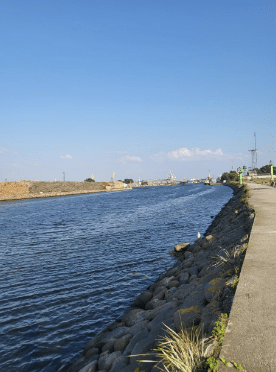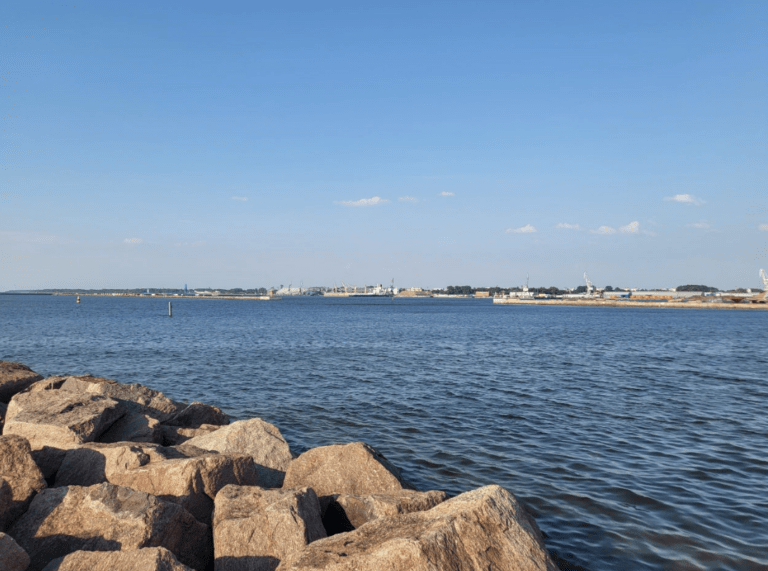Ecology of the Liepaja port
Anastasija Molokanova and Vladislava Poddubskaya
Have you ever wondered how the work of the port can affect the environment? To study this issue, my colleague, Vladislava and I decided to choose the port of a small Baltic city – Liepaja. Karlis Kints. Kindly give us the opportunity to interview him on this topic.

– First of all, tell us a little about yourself: what do you do?
– “I work for the port authority. I have two responsibilities: I am the sea harbor master and pollution prevention specialist”.
– What kind of discarded waste on the territory of the port and beyond (in the sea) represents the greatest danger and why?
– “It’s hard to say what is the most unsafe. The Karosta Canal is one of the most polluted places in the Baltic Sea. The analysis of the chemical composition of the water was disappointing. It contains the whole periodic table. Now work is underway to rehabilitate the canal. It used to be a military port, in the 70-80s, a full train with petroleum products poured out there. Imagine this, the whole train is 54 cars of fuel oil. And this is just one case.”
– How does pollution affect marine life? For example, what about fish? Is it getting fewer?
– “In the water area of the port, the number of fish depends not only on pollution, but also on the operation of the port. Because as soon as there are any works on deepening the canal, or any other work that muddies the water, then there are fewer fish. Fish live there, but it is not recommended to eat them.”
– What modern technologies are used to clean the port?
– “In most cases, absorbent booms are used to remove impurities from the water surface. We do not have such spills that, say, a ton of fuel oil spilled. At least, for all the time that I have been working here (since 2007), this has not happened. We usually work with a film, not a solid product. If there is a problem with a solid product, then we have a skimmer for this case.”
– What can ordinary people of Latvia do to prevent pollution? Maybe there are some rules that need to be followed? Or do we have an environmental protection society that we can join?
– “Under the Ministry of Environment there are all sorts of initiatives that go to collect garbage. I know that measurements were made on our beach by cigarette butts: how many cigarette butts lie at what distance. As it turned out, where there is a city, there were more cigarette butts. Therefore, if we talk about the rules, it is better not to throw cigarette butts into the water.”
– What issues can act as a brake during the cleaning of the port? For example, lack of finance, technology or people.
– “Well, of course, it’s finance. In some cases, I would say, the disinterest of the environmental protection service, in other cases, the disinterest of individual terminals. Here in Liepaja, the Karosta Canal is a historical legacy. Huge amounts of money are invested there.”
People still fish and swim on the territory of ports or on their borders not knowing what harm it can cause to their health.
I urge you to pay attention to this problem, to help people and the environment. Spread information about it and participate in volunteering programs.
Together, we will make our world a better place.
